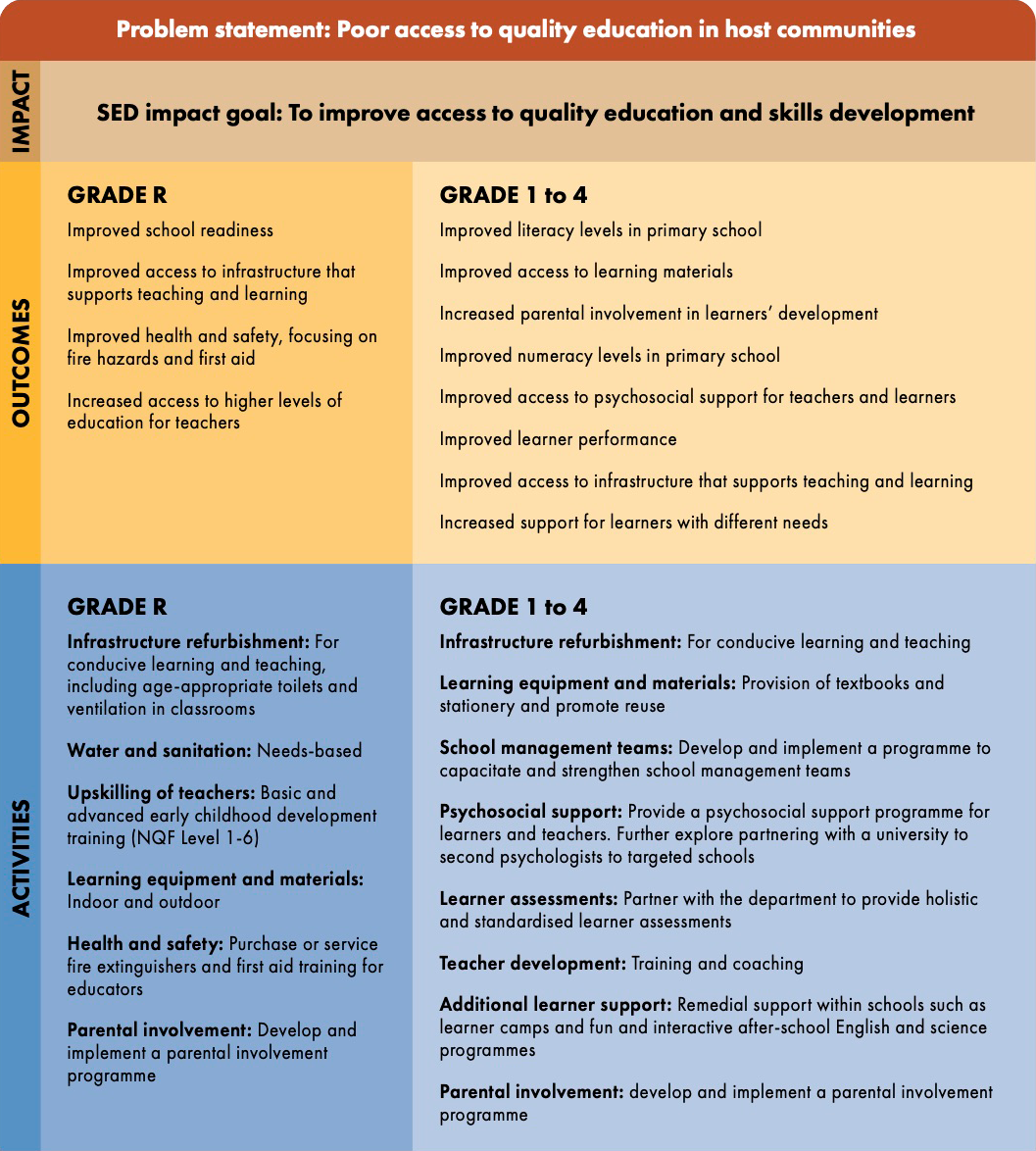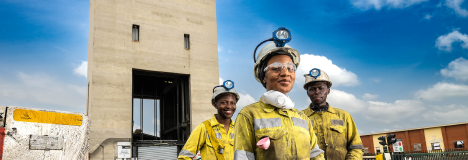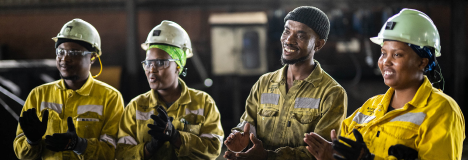Early in 2024, we launched the Thungela Education Initiative, a five-year partnership with the Mpumalanga Department of Basic Education. The initiative aims to improve educational outcomes for learners in 45 quintile 1–3 primary schools across eMalahleni, Steve Tshwete and Govan Mbeki. These schools serve children from severely disadvantaged financial backgrounds, which makes their parents exempt from paying school fees.
The R160 million initiative will focus on the foundation to intermediate phase, a critical period in a child’s cognitive, emotional and physical development. It begins in Grade R – the year before formal schooling starts – and extends to Grade 4.
Watch a video about our education initiative here.
Grade R and Grade 4 represent significant transitional periods in a child’s educational journey. In Grade R, some children move from preschool to a more structured learning environment, while others begin formal schooling for the first time. Grade 4 marks the shift from the foundation phase to a more advanced stage, where the curriculum becomes increasingly challenging with additional subjects. This transition coincides with early adolescence, a period of significant physical and emotional development that can influence learning and increase the risk of challenges such as bullying.
These changes may either set children up for success or compromise their development. Additionally, positive impacts during this period are long-lasting and can be observed throughout their primary and secondary school careers.
The initiative has been tailored to address concerns identified during an assessment carried out with support from the Department of Basic Education. This determined that, despite progressing to higher grades, many children demonstrate inadequate literacy and numeracy skills. Without this foundation, they struggle to meet the demands of later education and face ongoing challenges in their academic and personal development.
Some of the barriers identified include a lack of indoor and outdoor learning equipment, inadequate classroom space, an imbalanced teacher/learner ratio and a shortage of resources such as textbooks and educational aids.
Broadly, the project will enhance:
- leadership development;
- educator support;
- psycho-social support;
- learner support; and
- equipment and infrastructure.

Since the launch, a situational analysis has been conducted and a five-year implementation plan developed. We conducted an infrastructure assessment to identify priority activities, carried out fire compliance evaluations and completed a baseline assessment on leadership development as well as management and governance maturity. Non-functional sanitation facilities at Ipani Primary School were identified through the assessment and prioritised for urgent intervention. The ablution block was repaired and new septic tanks installed to ensure functional facilities for staff and learners.

Goedehoop also made significant improvements at Impilo Primary School, which has been expanded to accommodate learners from the old Springbok Primary School that was previously located in one of its old residential villages. The R5.7 million upgrade involved the construction of four new classrooms, the renovation of three existing ones and the furnishing of five more, along with the addition of a staffroom, boardroom, library and kitchen.
Isibonelo, Greenside and Khwezela offer supplementary school programmes for high school learners with potential. Starting in Grade 10, these programmes focus on English, mathematics, science and life sciences, and help scholars achieve results that will give them access to a tertiary institution.
Classes are held on Saturdays and during school holidays and are given by highly experienced educators. Learners also receive top- quality academic resources not available to them at their schools.

Isibonelo’s supplementary school programme is now in its 11th year and has significantly improved matric pass rates in the Govan Mbeki Municipality. This initiative has enabled numerous learners to secure scholarships and bursaries, both from our own business and other major companies in the region. Every member of the matric class of 2024 achieved a bachelor’s pass, the highest level of achievement in the National Senior Certificate exams. This qualifies them to continue their education at university. Every learner on the programme also passed the initiative’s four core subjects: English, mathematics, physical science and life sciences. A record 95 distinctions were achieved in these.
Information on our vocational training programmes and community scholarship scheme can be found on page 110.









